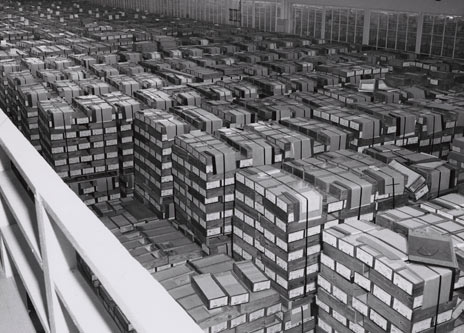File:IBM card storage.NARA.jpg
From Vigyanwiki
IBM_card_storage.NARA.jpg (464 × 333 pixels, file size: 49 KB, MIME type: image/jpeg)
File history
Click on a date/time to view the file as it appeared at that time.
| Date/Time | Thumbnail | Dimensions | User | Comment | |
|---|---|---|---|---|---|
| current | 04:34, 20 November 2011 |  | 464 × 333 (49 KB) | wikimediacommons>ArnoldReinhold | {{Information |Description ={{en|1=Storage of IBM record cards at the Federal records center in Alexandria, Virginia, November 1959. Between 1950 and 1966 the records centers received millions of cubic feet of records, saving the federal government mor |
File usage
The following 2 pages use this file:

